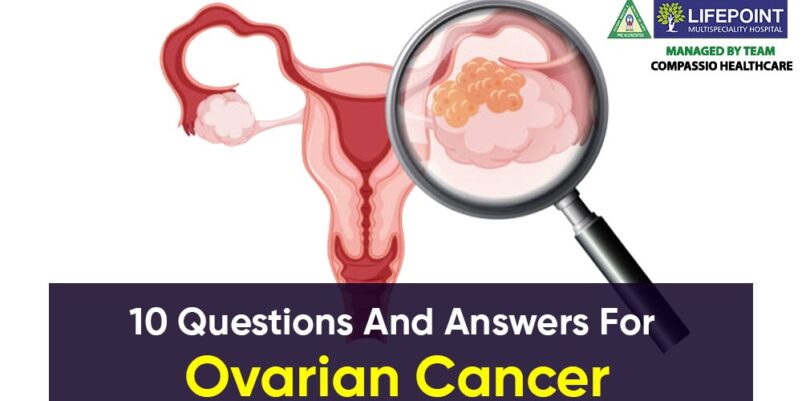Ovarian cancer is the second most frequent cancer in women after breast cancer. Cancer can be dangerous if left untreated because it spreads to other places of the body. Ovarian cancer is asymptomatic in most cases and is found in an advanced stage, earning it the moniker “silent killer.”
Dr Meenu Walia, Director-Medical Oncology & Haematology, Max Super Speciality Hospital, Patparganj, answers 10 common ovarian cancer queries.
- Are There Any Ovarian Cancer Risk Factors?
Some risk factors, such as family history, are beyond anyone’s control; however, other risk factors, such as lifestyle choices, can be modified. The following are primary ovarian cancer risk factors:
- Breast or colon cancer in the family
- relatives with a first-degree relative who has had breast or ovarian cancer
- Obesity
- Pregnancy, whether late or not
- More than 65 years old
- Menstruation at an early age and menopause at an advanced age
- Hormone Replacement Therapy History What Are the Most Common Ovarian Cancer Symptoms?
Symptoms of primary ovarian cancer include:
- Abdominal and pelvic pain
- bloating, indigestion, or nausea
- Urination regularly, diarrhoea, or constipation
- Appetite loss
- Weight gain or decrease that is unexplained
- Rectal or vaginal bleeding that is not usual
- enlarged abdomen and recurrent bloating
- Fatigue
- How is Ovarian Cancer Identified?
Before performing the necessary tests, the doctor inquires about the patient’s family history. This is followed by a physical assessment that includes a pelvic examination. The doctor looks for tumours in the lower abdomen and vagina. If a lump is seen, a transvaginal ultrasound, a CA 125 blood test, and a biopsy are all performed to ensure an accurate diagnosis.
- What exactly is the CA 125 blood test?
This blood test determines the concentration of cancer antigen – CA 125 – in the blood. This blood test is used to track the progression of some malignancies during and after therapy. CA 125 tests are also performed to search for early ovarian cancer symptoms in people at high risk of acquiring it. A high CA 125 level does not usually indicate ovarian cancer.
- Can Ovarian Cancer Develop After Ovaries Are Removed?
No, ovarian cancer cannot harm women who have had their ovaries removed. However, there is rare cancer called primary peritoneal carcinoma, which is close to ovarian cancer and can grow even if the ovaries are not present. The treatment for this type of cancer is the same as ovarian cancer.
- Is There a Screening Test for Ovarian Cancer? Is There a Screening Test for Breast Cancer?
Unfortunately, no ovarian cancer screening test is currently available. It is critical to avoid risk factors under control and be aware of the early ovarian cancer signs. Every woman should get a yearly vaginal, pelvic, and rectal examination as a precaution. If lower abdominal pain or other symptoms persist for more than two weeks, it is best to seek emergency medical attention.
- What exactly are Ovarian Cysts? Is there a link between them and ovarian cancer?
Ovarian cysts are fluid-filled sacs that form on the surface of the ovaries and are frequent during pregnancy. They are caused mainly by hormonal imbalances that occur during the menstrual cycle. Cysts are often non-harmful and disintegrate on their own. Fortunately, the majority of cysts never develop into malignant or cancerous lesions.
- Who Is the Best Health Care Provider to Treat Ovarian Cancer?
Ovarian cancer is best treated by oncologists skilled in gynaecological cancers. They have advanced training in abdominal surgery, pelvic surgery, and oncology. They also specialise in identifying and treating cancers of the female reproductive organs.

